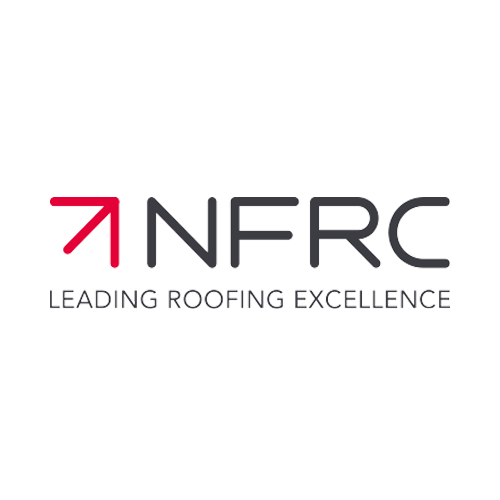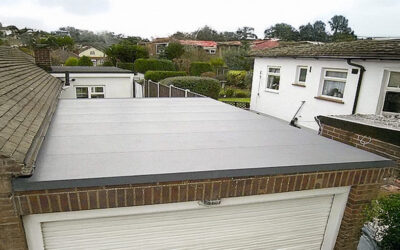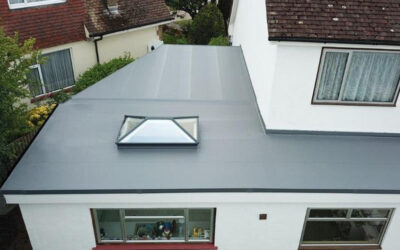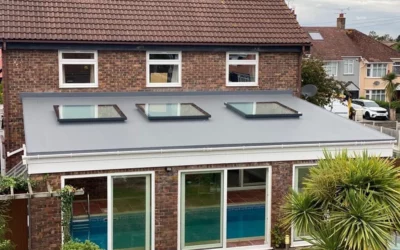Other than price, what other advantages are there choosing a flat roof over a pitched roof?
A ‘flat roof’ is actually a slight misconception; in order to enable rainwater to drain away, flat roofs have a slight pitch of a few degrees.
However, you may be looking into the pros and cons of flat and pitched roofs before you make a final decision. Whether your building is domestic or commercial, the roof structure is an integral part of its design, with the aesthetic look of your roof dependent on the type and style of the property, your budget and relevant planning and building regulations.
Typically there are two types of roofs to choose from when planning a new build project or extension to your current property – pitched and flat roofing.
Pitched Roof
A pitched roof has at least two slopes that rise to meet at a peak. Known for their long lifespan, their contruction is designed to enable usable space in your building’s loft area, maximising space and affording the type of flexibility that a flat roof simply can’t match. Your property will benefit from added insulation and rooms will not be afflicted by extremes of temperature that can come with a flat roof installation.
Unfortunately, pitched roofs also come with a hefty price tag; their complex design and significant labour and material costs mean that pitched roofs are far more expensive than a flat roof. In addition, installing a pitched roof may result in issues with the depths of your property’s footings as it places a greater burden on the building’s foundations. This means that it may not always be possible to replace an old flat roof with a pitched roof.
Flat Roof
Known for their space saving, compact design, flat roofs are particularly good for smaller structures, such as extensions, dormer, porches and garages. A flat roof is basically a horizontal base fixed to the building’s ceiling joists and then covered with a waterproof membrane. To enable rainwater to drain from the roof, a flat roof is slightly pitched by just a couple of degrees.
Flat roofing is both economic and efficient, which saves the owner energy and money. Its construction involves considerably less labour and materials than its pitched roof counterpart and full replacement can often take just a day.
Traditionally, flat roofs were constructed from mineral felt that was then covered with a thin layer of stone chippings to protect the roof from UV sunlight. However, there is a tendency for flat felt roofs to blister in hot weather, attract damaging moss and algae and crack with temperature changes. High-Tech Membrane Roofing’s singly-ply PVC membranes can be applied seamlessly in one piece and comes with a LIFETIME guarantee
Regarded as the number 1 specialist in Essex and Kent for flat roofing solutions, High-Tech Membrane Roofing has all the information you need to make an informed decision about your property’s roof




















